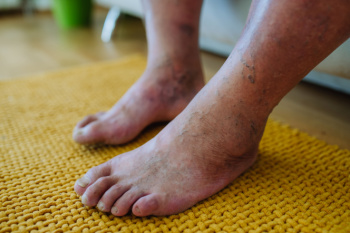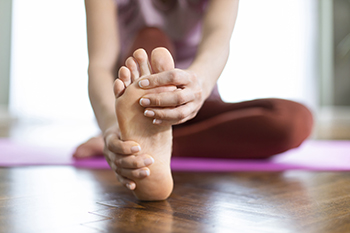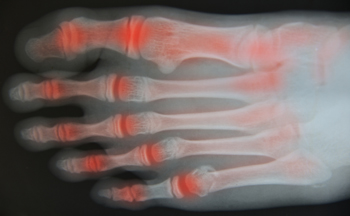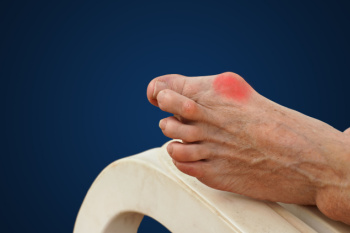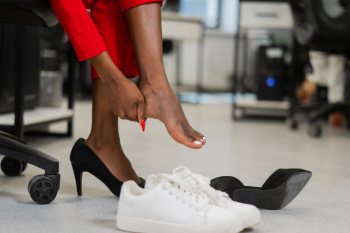
Pickleball-related foot and ankle fractures are a growing concern, particularly among seniors and males, who are more likely to sustain injuries severe enough to require hospitalization. The fast-paced nature of the game, coupled with sudden pivots, lunges, and lateral movements, increases the risk of falls, especially during winter months when outdoor courts may be icy. Fractures often occur when players trip or lose balance, leading to injuries like ankle fractures, stress fractures, or even heel bone injuries. To reduce the risk, players should wear proper court shoes with good grip and ankle support, warm up thoroughly, and practice balance-enhancing exercises. Indoor courts during colder months can provide a safer playing surface. If you have sustained a foot or ankle fracture from playing pickleball, it is suggested that you promptly address the pain or swelling with a podiatrist to prevent complications. This type of doctor can diagnose injuries and provide tailored treatments, ensuring a safe return to play.
Sports related foot and ankle injuries require proper treatment before players can go back to their regular routines. For more information, contact one of our podiatrists of Comprehensive Foot & Ankle Center of South Jersey. Our doctors can provide the care you need to keep you pain-free and on your feet.
Sports Related Foot and Ankle Injuries
Foot and ankle injuries are a common occurrence when it comes to athletes of any sport. While many athletes dismiss the initial aches and pains, the truth is that ignoring potential foot and ankle injuries can lead to serious problems. As athletes continue to place pressure and strain the area further, a mild injury can turn into something as serious as a rupture and may lead to a permanent disability. There are many factors that contribute to sports related foot and ankle injuries, which include failure to warm up properly, not providing support or wearing bad footwear. Common injuries and conditions athletes face, including:
- Plantar Fasciitis
- Plantar Fasciosis
- Achilles Tendinitis
- Achilles Tendon Rupture
- Ankle Sprains
Sports related injuries are commonly treated using the RICE method. This includes rest, applying ice to the injured area, compression and elevating the ankle. More serious sprains and injuries may require surgery, which could include arthroscopic and reconstructive surgery. Rehabilitation and therapy may also be required in order to get any recovering athlete to become fully functional again. Any unusual aches and pains an athlete sustains must be evaluated by a licensed, reputable medical professional.
If you have any questions please feel free to contact our offices located in Cherry Hill, Voorhees, Atco, and Turnersville, NJ . We offer the newest diagnostic and treatment technologies for all your foot and ankle needs.
